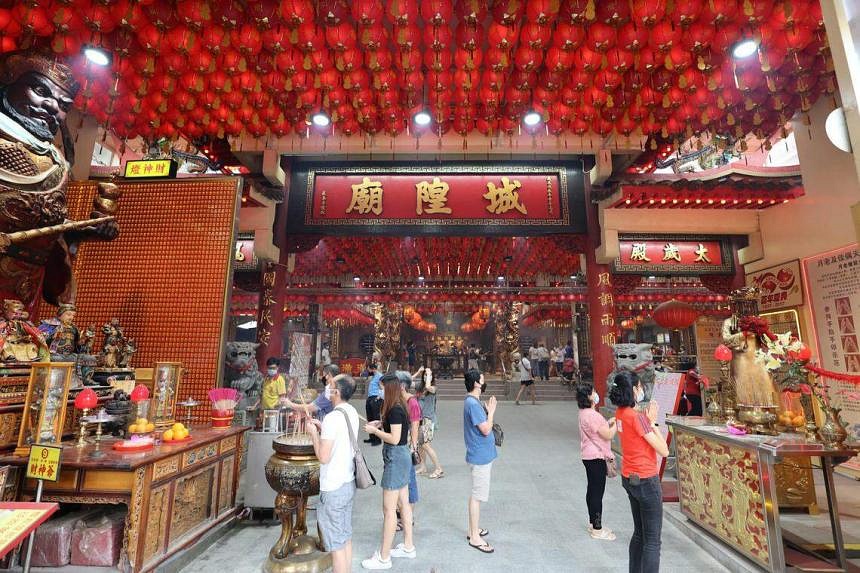SINGAPORE – Religious groups said they will have more funds to meet community needs moving forward, after fixed-price balloting replaces the current system of competitive bidding for place of worship land.
The new ballot system announced on Sunday is expected to bring down the price of such land parcels, said the Ministry of National Development. It follows rising prices of land for religious use in recent years that were driven up by competitive bids.
These bids affected not just organisations obtaining new land, but also religious groups on leasehold land, as their lease renewal premiums were pegged to recent tender prices, among other factors.
Venerable Seck Kwang Phing, president of the Singapore Buddhist Federation, said the new ballot system is a boon for smaller religious organisations that could not compete with financially stronger groups under the competitive tender framework.
The federation represents about 130 temples and organisations, of which about 10 per cent are on leasehold land.
He said money saved on leases could go towards other needs such as temple programmes, education and charity.
Likewise, the National Council of Churches of Singapore (NCCS), which has 215 member churches, said the cost savings could be channelled to benefit others in society.
“The mission of every church, whether large or small, always includes outreach projects to the community where it is located,” said the council, which added that churches set aside funds for these causes, and will now be able to increase budgets for outreach programmes.
As to how much will be saved, religious organisations said they have to wait and see what the chief valuer’s assessment is for new plots under the fixed-price framework, which will in turn affect lease renewal premiums.
NCCS said it had been calling for a fixed-price ballot system since 2016, and that this would hopefully lower lease renewal premiums.
The council said that while any allocation system is difficult to implement, given churches’ diverse needs – some operate independently and others are governed by denominational affiliations – balloting is the most practical way to award new sites to its members at this point.
NCCS noted that the fixed-price ballot system may not necessarily favour churches with larger financial resources as it provides no certainty of land being awarded, but said the new system’s impact on these churches – if any – can be assessed only in the future.
The Roman Catholic Archdiocese of Singapore, which has 32 churches here and decides when and where to place bids for new church land, said fixed-price balloting is a welcome relief as high land prices have limited church expansion and diverted resources away from other work, including supporting the broader community.
But it urged the authorities to consider adjusting the ballot system to account for the location-specific needs of organisations.
The archdiocese said it builds new churches in locations that are typically underserved by existing Catholic institutions, to support Catholics in these areas.
Should their ballot for a specific site be unsuccessful, said the archdiocese, having an extra ballot chance for another place of worship site – one of the measures to help organisations secure land under the new framework – would not be beneficial, especially if the subsequent site is already well served by Catholic churches.
Ven Kwang Phing said the policy announcement was timely for institutions such as Zu-Lin Temple – where he spoke to reporters last Saturday – which has a 30-year lease expiring in August 2024, and in 2022 completed a six-year rebuilding project.
He said there will likely be demand from Buddhist groups for temple land when sites are put up for ballot later in 2023.
Some organisations that might have been put off by the uncertainty and rising prices under the competitive tender system are likely to give the ballot a go, he said, adding that these groups will welcome the price certainty.
NCCS said demand for new church land could come from its members that were already planning to plant new churches before the pandemic, and added that others are likely re-evaluating their space needs as pre-pandemic attendance has not returned to all churches.
At least four place of worship sites have been identified for launch in 2023 by the Housing Board – two for Chinese temples and the others for churches.


